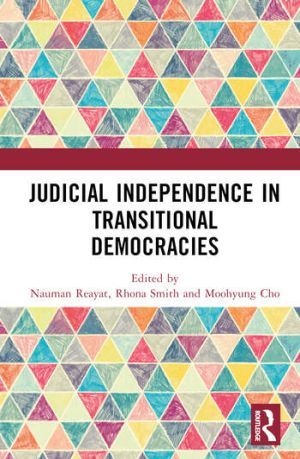
This book presents interdisciplinary and comparative analyses of judicial independence in transitional democracies across Asia, Latin America, Eastern Europe, the Middle East, and Africa. Although judicial empowerment and independence in transitional democracies have gained both academic and real-world prominence in recent decades, an ongoing debate persists regarding the nature, scope, and determinants of judicial independence in transitional settings. Some transitional democracies successfully develop democracy and the rule of law with the sustained growth of judicial independence, whereas others grapple with substantial challenges and move more towards authoritarianism. This book examines factors that drive de jure and de facto judicial independence in transitional democracies and evaluates their relationship. In doing so, it identifies challenges and opportunities associated with developing judicial independence in transitional democracies. At the intersection of political science and law, the work will be a valuable resource for academics, researchers, and policymakers in constitutional law, constitutional politics, and human rights law.